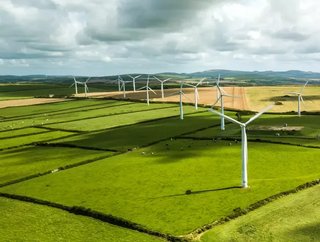What will the government’s Clean Growth Strategy provide?

The government’s Clean Growth Strategy is a proposal to reduce greenhouse gas emissions across the nation by building a lower-carbon future for the UK.
The 165-page document, produced by the Department for Business, Energy & Industrial Strategy (BEIS), can be downloaded here. However, don’t worry if you don’t have time to delve through it all because gas mains specialist, Flogas, has condensed it into an easy-to-read summary of what it means for UK homes and businesses.
What is the UK’s commitment to climate change?
To understand fully, it’s essential that you know the background legislation that brought the Clean Growth Strategy to fruition.
In 2008, the UK introduced the Climate Change Act, and through this became the first nation in the world to self-impose a legally binding carbon reduction target. The crux of it? To reduce greenhouse gas emissions by at least 80% by 2050 (compared to 1990 levels).
How close are we to meeting the target?
It’s encouraging to see that the UK is well on its way to meeting its target, according to figures released by BEIS in March 2017 — since 1990, overall carbon emissions have dropped by 42%. While this progress is encouraging, the government acknowledges that there is still plenty more work to be done – and that’s where proposals like the Clean Growth Strategy come in.
How can the Clean Growth Strategy help?
The Clean Growth Strategy was set up to accelerate the pace of ‘clean growth’ by decreasing emissions as well as increasing economic growth. With that in mind, the two guiding objectives underpinning the strategy are:
- To meet our domestic commitments at the lowest possible net cost to UK taxpayers, consumers and businesses.
- To maximise the social and economic benefits for the UK from this transition.
For this vision to become a reality, the government has committed to rolling out lower-carbon processes, systems and technologies nationwide – doing so in the most cost-effective way possible for businesses and homes alike.
What are the Clean Growth Strategy’s key proposals?
The strategy focuses on six key areas which are wholly responsible for the UK’s carbon emissions. They aim to:
- Improve business and industry efficiency (25% of UK emissions)
- Improve our homes (13% of UK emissions)
- Accelerate the shift to low-carbon transport (24% of UK emissions)
- Deliver clean, smart, flexible power (21% of UK emissions)
- Enhance the benefits and value of our natural resources (15% of UK emissions)
- Lead the public sector (2% of UK emissions)
You can find the full list of 50 pledges in this executive summary.
What does this mean for homes and businesses?
Essentially, homes, businesses and industrial operations will be supported and encouraged by the government to reduce their carbon footprint in a variety of ways. A major focus will be reassessing the fuels we use for jobs like heating, cooking, and powering industrial and manufacturing processes – and embracing cleaner, greener alternatives.
This will boost the uptake of renewable technologies such as heat pumps, biomass boilers and solar panels in the long term, and favour cleaner conventional fuels over more polluting ones. For example, for off-grid homes and businesses, the strategy sets out specific plans to phase out high-carbon forms of fossil fuels like oil. As the lowest-carbon conventional off-grid fuel, oil to liquefied petroleum gas (LPG) conversions will play a key part in replacing oil in rural parts of the country.
Natural gas will of course remain a popular choice for buildings that are connected to the mains network – not only because of its accessibility and affordability, but also because it is the lowest-carbon fossil fuel on the market. Flogas, which specialises in highly competitive commercial mains gas, expects to see this part of its business continue to go from strength to strength.
The company has been an energy sector expert for more than 30 years and predicts that the ‘green gas’ phenomenon which sees natural gas injected with a proportion of environmentally friendly biogas will grow in demand thanks to the Clean Growth Strategy rolls.
Reaction to the Clean Growth Strategy
Key industry figures have been keen to show their support following the Clean Growth Strategy’s unveiling.
Lee Gannon, Managing Director of Flogas, said: “Through the publication of its Clean Growth Strategy, the government has made clear its intention to reduce carbon emissions from off-grid UK homes and businesses. Natural gas is affordable, versatile, widely available and – most importantly – emits significantly less carbon than the likes of coal and oil. As such, it will continue to play a central role as the UK works towards cleaning up its energy landscape. We look forward to working alongside policymakers and wider industry stakeholders to make the Clean Growth Strategy the success that it deserves to be.”
Trade body Oil & Gas UK also supports the strategy. Mike Tholen, its Upstream Policy Director, commented: “Oil & Gas UK welcomes the government’s commitment to technology in the strategy, especially with regards to carbon abatement measures such as carbon capture, usage and storage. Oil & Gas UK looks forward to working with the government to see how these technologies can further reduce emissions across the economy.”






